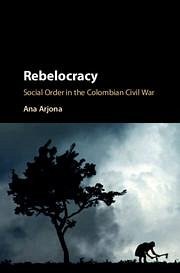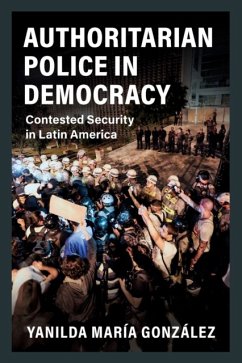
Rebelocracy
Versandkostenfrei!
Versandfertig in über 4 Wochen
46,99 €
inkl. MwSt.
Weitere Ausgaben:

PAYBACK Punkte
23 °P sammeln!
Challenging the conventional perception that war zones are chaotic and anarchic, this study analyzes rebel institutions, social order and civilian-combatant relations in the Colombian civil war. The results of extensive fieldwork shed light on how war transforms communities, patterns of local governance, non-violent resistance, state building, and political order.














